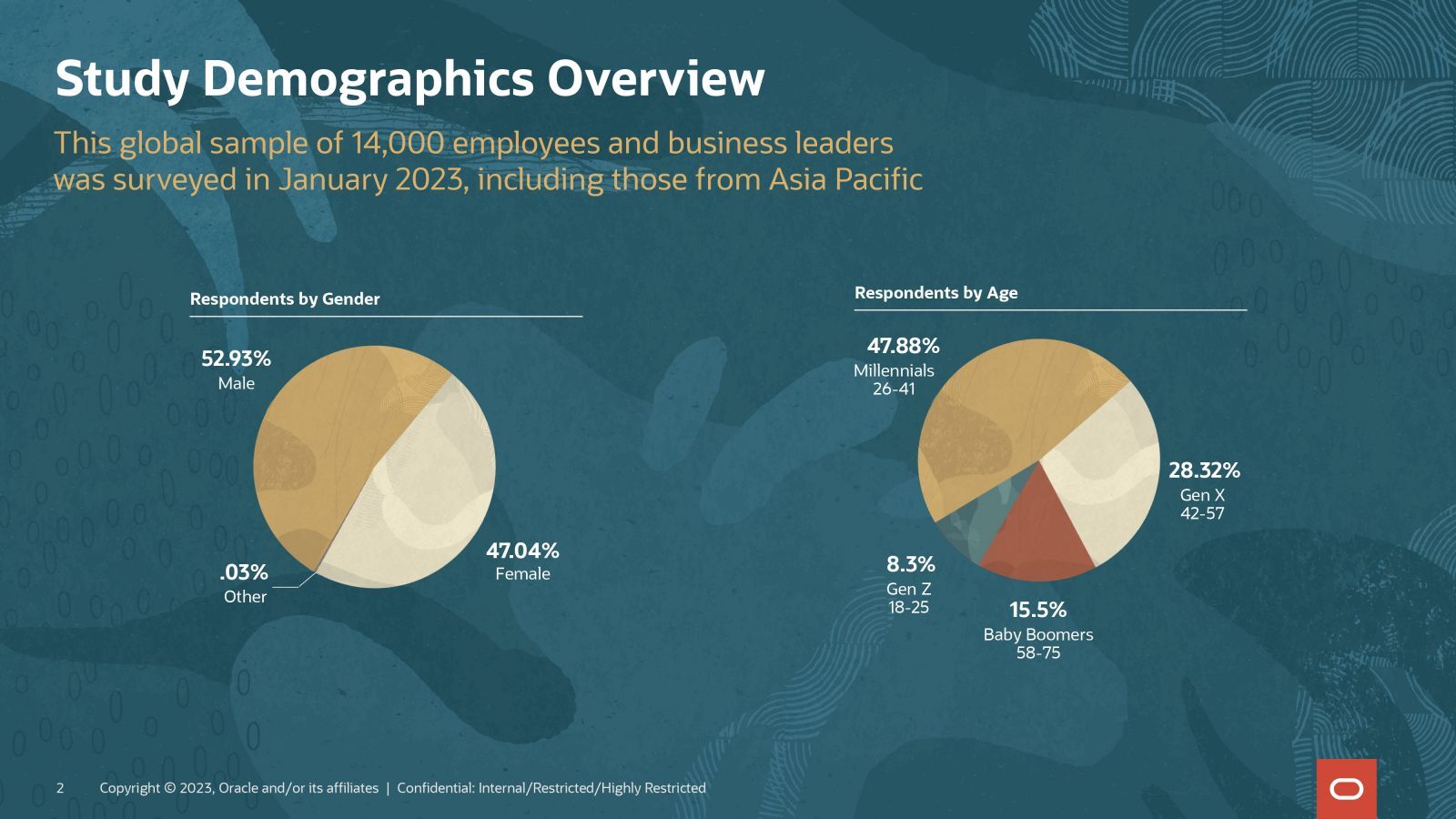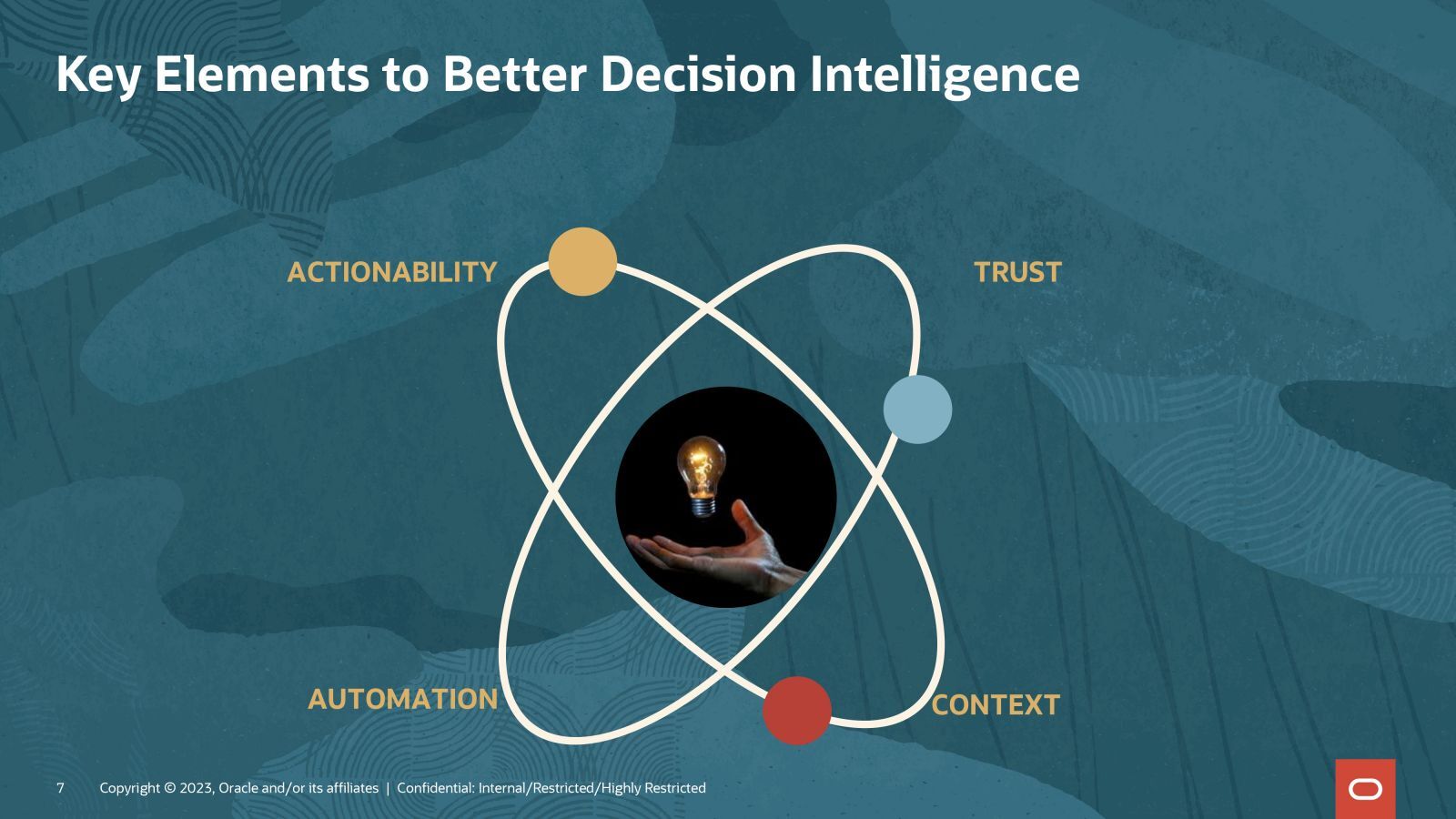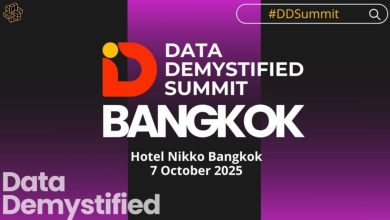
Hold onto your hats, folks, because a new study conducted by the wizards at Oracle together with the esteemed Seth Stephens-Davidowitz, a New York Times best-selling author, has revealed a shocking truth – people are feeling completely overwhelmed and underqualified when it comes to using data to make decisions. And it’s not just affecting their business performance, it is also having a negative impact on their quality of life!
The study surveyed more than 14,000 people across 17 countries, including over 4,500 respondents from the Asia Pacific and Japan (JAPAC) region. And the results were staggering. People are finding it increasingly difficult to make decisions in both their personal and professional lives, with the sheer volume of data making things more complicated than ever before.

The ensuing report emphasises that people are becoming more overwhelmed with data in today’s world. In fact, 86% of respondents from JAPAC said that the volume of data is making decision-making much more complicated, and 61% said they face a decision dilemma – not knowing what decision to make – more than once every single day!
Chris Chelliah, Senior Vice President, Technology and Customer Strategy at Oracle Japan and Asia Pacific said, “As businesses expand to serve customers in new ways, the number of data inputs required to get the full picture expands too. Business leaders that make critical decisions ignore that data at their own risk.”
The Perils of Data Overload
The quantity of data is really causing problems. According to the study, 33% of people do not even know which data or sources to trust, and a whopping 71% have given up on making a decision altogether because the data was simply too overwhelming. This inability to make decisions is causing anxiety, missed opportunities, and unnecessary spending, with 89% of people admitting that it is having a negative impact on their quality of life.
Business leaders in JAPAC are also struggling to cope. They want data to help them make better decisions, reduce risk, and make more money, but they do not believe they have the tools to be successful. In fact, 87% of business leaders have suffered from decision distress – regretting, feeling guilty about, or questioning a decision they made in the past year. And a massive 90% believe that having the right type of decision intelligence can make or break the success of an organisation.
But hold on, here is the kicker – despite all this data at their fingertips, 73% of business leaders admit that the sheer volume of data and their lack of trust in it has actually stopped them from making any decisions at all! Not to mention, a whopping 92% believe that the growing number of data sources has limited the success of their organisations.
So, what is the solution to this data overload? According to the study, organisations need to focus on building a data-driven culture that fosters trust, transparency, and collaboration. They need to invest in the right tools and skills to democratise data and empower everyone to make informed decisions based on facts, not opinions or biases. In addition, they should put an emphasis on data governance, quality, and security to guarantee reliable data.
Oracle’s Outstanding Effort in Driving Better Decisions
The Senior Vice President, Technology and Customer Strategy, Oracle Japan and Asia Pacific, Chris Chelliah shared 4 key elements of how Oracle is helping its customers to make better decisions: Actionability, Trust, Automation and Context as well as some use cases where these four elements have enabled their customers to a better decision intelligence.
 Chris Chelliah, Senior Vice President, Technology & Customer Strategy, Oracle, JAPAC
Chris Chelliah, Senior Vice President, Technology & Customer Strategy, Oracle, JAPAC
Trust
In order to make sound choices, decision-makers must have complete confidence in the information at their disposal. 71% of Asia-Pacific CEOs admit to second-guessing themselves because they can’t decide which facts to believe.
Chris mentioned that Oracle Autonomous Data Warehouse is designed to address such issues. In addition to relational, geographic, document, graph, and time series data, this technology also offers embedded machine-learning and analytics that enable it to serve as a reliable, savvy and always-available data assistant.
As an example, Chris highlighted how Oracle Autonomous Database and Oracle Machine Learning helped Forth Smart, a growing FinTech company with operations in Thailand and a network of more than 120,000 vending machines, to optimise its operations and meet its objectives.
Context
Executives require data and analytics tailored to their individual professions and industries. Chris shared that 79% of Asia-Pacific company leaders think decision-making will be aided by technology that understands their daily duties and industry. With Oracle Fusion Analytics, businesses can get strong contextual analytics that is tightly integrated with ERP, SCM, HCM, and CX operations.
He then explained how FedEx is equipped to handle both organic and inorganic expansion thanks to Oracle Cloud ERP, EPM, SCM, and Analytics. The goal of FedEx’s Digital Innovation Centre of Excellence (DICE) was to achieve game-changing efficiencies in the company’s back-end processes. FedEx has made great progress in automation thanks to the standardisation of over 220 activities and the use of more than 40 Oracle Cloud applications.
To further automate its processes, FedEx also implemented Oracle Digital Assistant and OCI Integration Services. There were no physical handoffs between any of these steps because more than 25 digital helpers were involved. In addition, over 3,000 workers are now utilising Oracle Analytics Cloud, providing them with access to AI, ML, and SA, all of which contribute to improved data-driven decision-making.
Actionability
To see their plans through, decision-makers must do more than merely receive information. Chris argued that while most analytic solutions just give you insights without showing you what to do next, 74% of Asia-Pacific business leaders believe that decisions are only judged on their outcomes.
Oracle Analytics, fortunately, provides a novel answer by way of a built-in action framework that links insights with behaviour. Chris said Beyonics, a precision manufacturing firm, has found this to be especially helpful as the company has been expanding through acquisitions and mergers, resulting in a proliferation of applications, processes, and procedures.
The management at Beyonics was able to get a bird’s-eye view of the company once they migrated to Oracle Cloud Infrastructure and Applications and began using Oracle Analytics Cloud and Integration to combine data from disparate sources. Access to data, reports, and cross-functional KPIs at varying degrees of granularity lets them make quicker, better-informed decisions.
Automation
Last, but certainly not least, decision-makers need a means of automating more of their procedures in order to streamline the decision-making process, with 85% of Asia-Pacific business leaders surveyed said they would make different choices if they had access to data on the effects of past choices.
In response, Oracle Integration provides decision modelling and processing assistance, which facilitates decision automation and capture.
PLDT, the largest telecommunications company in the Philippines, has adopted this technology by implementing Oracle Digital Assistant to improve its customer experience. Oracle Digital Assistant was incorporated into PLDT Home’s customer care channels to give customers an easy-to-use and low-cost self-service option. Since its launch in May 2020, the AI Voice Assistant has taken over 20% of interactions across all digital channels, allowing for faster and more accurate responses to consumer enquiries.

This seems like a lot to digest, so, let us all take a deep breath and remember – data is a valuable asset, but it can also be a liability if it is not properly managed, analysed, and communicated. With the right approach, we can turn data from a burden into a boon, and unlock its full potential to drive innovation, growth, and impact.




